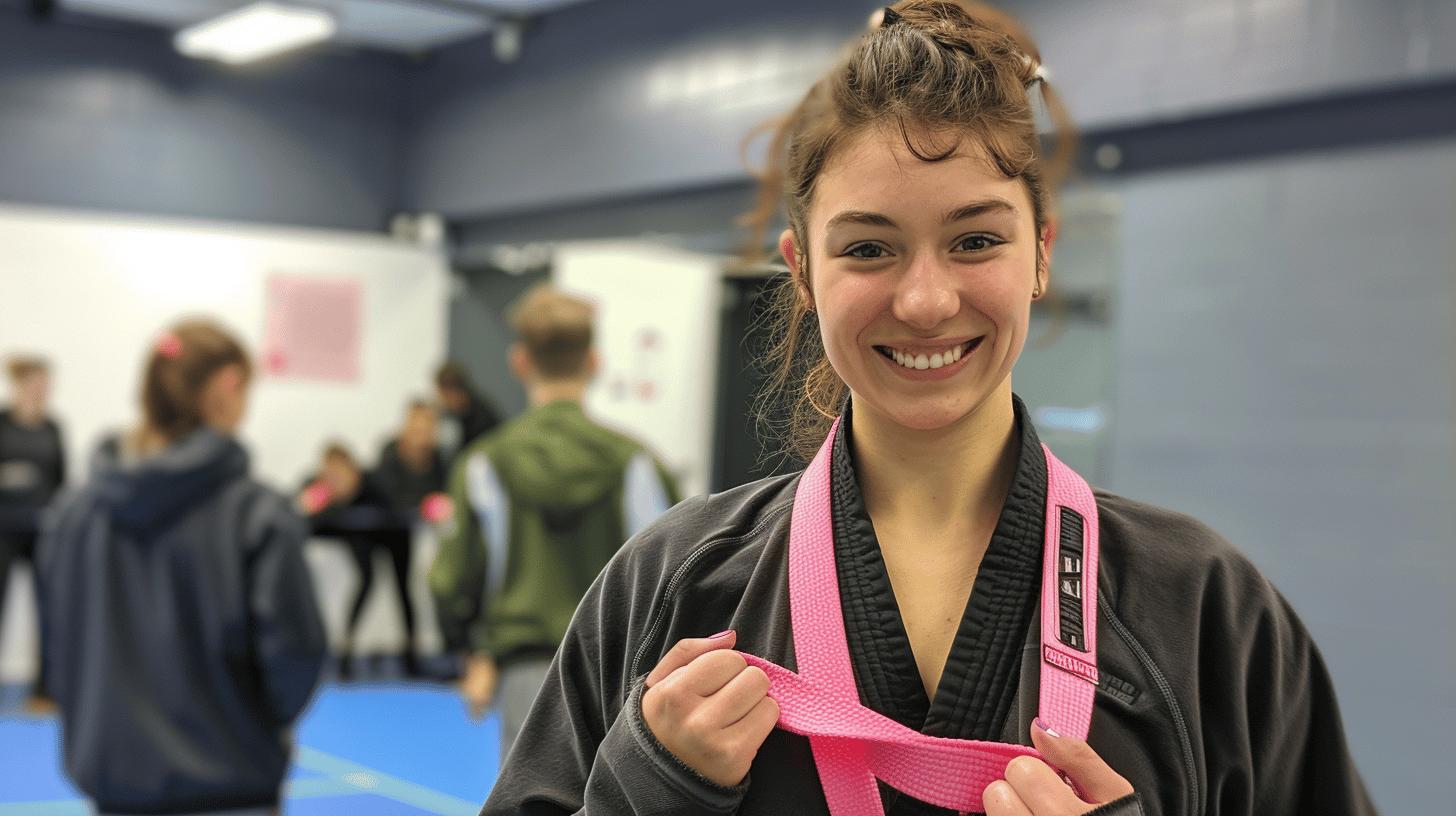Looking to kickstart your fitness journey with a fun, high-energy workout? Kickboxing might just be the answer. Whether you're aiming to shed some pounds, build strength, or relieve stress, finding the right beginner kickboxing class near you is crucial for achieving your goals. In this article, we'll explore top-rated local kickboxing gyms, their schedules, and pricing options. By the end, you'll have all the information you need to choose the perfect class and start your kickboxing journey on the right foot. Ready to discover the best beginner kickboxing classes near you? Let's dive in.
Finding Beginner Kickboxing Classes Near You
Choosing a convenient location for your beginner kickboxing classes is crucial. A nearby gym ensures regular attendance, which is key to making consistent progress. Look for facilities within a reasonable distance from your home or workplace to minimize travel time and maximize your commitment to the training.
Class schedules and pricing are equally important factors. Most gyms offer a range of schedules to fit various lifestyles, including morning, afternoon, and evening classes. Pricing structures can vary widely, from pay-per-class options to monthly memberships. Many gyms also offer trial classes or discounted rates for beginners, allowing you to sample the program before fully committing.
- Top-rated local kickboxing gyms:
- Elite Kickboxing Academy
- Powerhouse Gym Kickboxing
- Ultimate Fitness Kickboxing
- Champion's Kickboxing Center
- Victory Martial Arts Studio
User reviews and testimonials can provide valuable insights into the quality of the classes and instructors. Positive feedback from other beginners can reassure you about the gym's environment and effectiveness. Look for reviews that highlight the instructors' expertise, the friendliness of the community, and the progress made by other beginners. Testimonials often reflect real experiences, making them an excellent resource for evaluating your options.
Understanding Different Types of Kickboxing Classes
Kickboxing classes cater to various demographics, including beginners, women, children, and adults. This diverse range ensures that everyone can find a program suited to their needs and goals. Whether you're looking for fitness, self-defense, or a structured activity for your child, there's likely a kickboxing class tailored to your requirements.
Women's Classes
Women's kickboxing classes offer special programs designed to address unique fitness and empowerment goals. These classes often include female-only sessions, providing a comfortable environment for women to train. Empowerment programs focus not just on physical fitness but also on boosting confidence and self-esteem. These classes are particularly beneficial for women looking to improve their overall fitness, learn self-defense techniques, and gain a sense of community and support.
Kids' Classes
Kickboxing classes for kids emphasize fitness, discipline, and skill development. These programs are structured to be engaging and fun while teaching valuable life skills such as respect, focus, and perseverance. Specific programs aimed at children often include age-appropriate drills and activities that keep young participants motivated and excited about attending classes. The benefits extend beyond physical fitness, helping children develop social skills and self-discipline.
Adult Classes
Adult kickboxing classes are designed to meet various goals, such as improving fitness levels, relieving stress, and learning self-defense techniques. These classes often focus on high-intensity workouts that combine cardiovascular exercises with strength training. Adults can benefit from the stress relief that kickboxing provides, making it an excellent way to unwind after a long day. Additionally, the self-defense skills learned in these classes can be invaluable for personal safety.
Evaluating Instructor Qualifications

Instructor qualifications are crucial for ensuring a safe and effective training environment, especially for beginners. Qualified instructors bring a wealth of knowledge, ensuring that techniques are taught correctly and safely. An experienced instructor can tailor training to individual needs, providing personalized feedback and adjustments. This expertise minimizes the risk of injury and maximizes the benefits of the training.
When looking for a kickboxing instructor, consider the following qualifications:
- Certifications: Look for certifications from recognized martial arts or fitness organizations.
- Experience: An extensive background in teaching kickboxing or related martial arts.
- Specializations: Expertise in specific areas such as women's self-defense or children's fitness.
- High Ratings: Positive reviews and testimonials from past students.
- Continuous Education: Ongoing training to stay updated with the latest techniques and safety protocols.
Instructor Name Experience Rating Jane Doe 10 years 4.8 John Smith 8 years 4.7 Emily Brown 12 years 4.9 Michael Lee 15 years 5.0
Class Schedules and Pricing
Typical class schedules for beginner kickboxing classes are designed to accommodate various lifestyles. Most gyms offer classes throughout the week at different times, including morning, afternoon, and evening sessions. This flexibility allows participants to choose time slots that best fit their personal and work commitments. Weekend classes are also common, providing additional options for those with busy weekday schedules.
Pricing structures can vary significantly among gyms. Some facilities offer pay-per-class options, which can be ideal for those who prefer a flexible attendance pattern. Monthly memberships are another common pricing model, providing unlimited access to classes for a fixed fee. These memberships often come with added benefits, such as access to other gym facilities and services. Additionally, many gyms offer discounted rates for beginners, making it more affordable to start your kickboxing journey.
- Gyms offering free trials or discounts:
- Elite Kickboxing Academy: Free first class
- Powerhouse Gym Kickboxing: 50% off first month
- Ultimate Fitness Kickboxing: One-week free trial
- Champion's Kickboxing Center: Discounted beginner package
Regular attendance is crucial for progress in beginner kickboxing classes. Consistent participation helps in building muscle memory, improving fitness levels, and mastering techniques. Missing classes can disrupt learning and slow down progress. Therefore, choosing a gym with a schedule that aligns with your availability is essential for maintaining a regular training routine and achieving your kickboxing goals.
Benefits of Enrolling in Beginner Kickboxing Classes
Joining beginner kickboxing classes offers a multitude of health benefits. Physically, kickboxing provides an excellent full-body workout that improves cardiovascular health, increases strength, and enhances flexibility. Mentally, the rigorous training helps in stress relief and boosts mental clarity. For those seeking to build confidence and self-discipline, kickboxing presents an ideal challenge that fosters personal growth and resilience. Moreover, the structured environment of a kickboxing class promotes a disciplined lifestyle, encouraging routine and focus.
Mental Health
Kickboxing is not just a physical activity; it significantly impacts mental well-being. The high-intensity workouts cause the brain to release endorphins, which are natural mood lifters. This chemical release helps in alleviating stress and anxiety, making participants feel more relaxed and focused. Additionally, learning and perfecting new techniques can improve cognitive functions and concentration.
"I started kickboxing to relieve stress from my busy work life. Not only did it help me physically, but I also found myself more focused and less anxious," says Sarah, a beginner kickboxer.
Community Support
One of the key benefits of joining a kickboxing class is the sense of community it fosters. Engaging with fellow beginners and experienced practitioners creates a supportive environment where everyone motivates each other. The camaraderie developed within the class can be a significant source of encouragement, helping participants stay committed to their fitness journey. Furthermore, the shared experience of training together builds lasting friendships and a strong support network.
"The best part about my kickboxing class is the people. We push each other to do better every session, and the friendships I've made keep me coming back," shares Mark, who recently joined a beginner class.
Enrolling in beginner kickboxing classes is more than just a way to get fit; it is a holistic approach to improving both physical and mental health while becoming part of a supportive community.
Final Words
Finding the right beginner kickboxing classes involves understanding nearby options, evaluating different types of classes, and assessing instructor qualifications.
The detailed guide covers listings, schedules, pricing, and reviews, offering a comprehensive view of the local kickboxing landscape.
Evaluating instructor qualifications ensures safety and quality training, while understanding class schedules and pricing helps in planning.
Joining beginner kickboxing classes near me not only boosts physical health but also enhances mental well-being and community support.
Starting your journey in kickboxing can be a rewarding and enriching experience.
FAQ
How do you start kickboxing for beginners?
To start kickboxing for beginners, find a local kickboxing gym with beginner classes. Begin with basic techniques and progressively advance. Consider trial classes to assess fit and quality.
Is 30 too old to start kickboxing?
No, starting kickboxing at 30 is not too old. Kickboxing can be tailored to various fitness levels and ages, offering significant physical and mental health benefits at any age.
Is 45 too old to start kickboxing?
No, 45 is not too old to start kickboxing. Many people begin at this age and achieve great results. It's important to choose a class tailored for beginners to ensure safe progression.
Is training kickboxing 3 times a week enough?
Training kickboxing three times a week is generally enough for beginners to see improvements in fitness, technique, and overall health. Consistency is key for progress and skill development.

